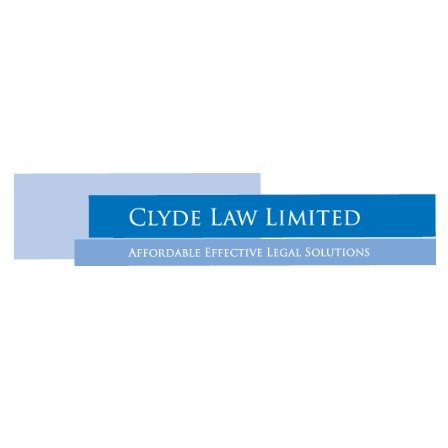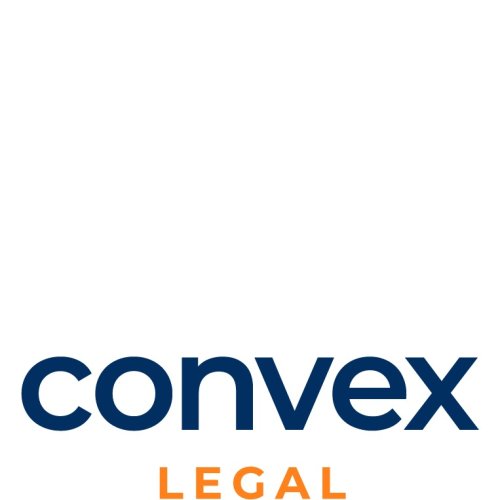Best Foreclosure Lawyers in New Zealand
Share your needs with us, get contacted by law firms.
Free. Takes 2 min.
Free Guide to Hiring a Real Estate Lawyer
Or refine your search by selecting a city:
List of the best lawyers in New Zealand
About Foreclosure Law in New Zealand
Foreclosure in New Zealand is a legal process by which a lender seeks to recover the balance of a loan from a borrower who has stopped making payments. This process often involves the lender repossessing and selling the property used as collateral for the loan. While the term 'foreclosure' is more commonly used in the USA, in New Zealand, the process is often referred to as a mortgagee sale. The process is regulated to ensure that the rights of the borrower are protected, and the lender follows the appropriate legal procedure before assuming ownership of the property.
Why You May Need a Lawyer
Engaging a lawyer can be crucial in several scenarios related to foreclosure:
- Understanding Legal Rights: Knowing your rights as a borrower can be complex. A lawyer can help explain your rights and obligations under New Zealand law.
- Negotiation with Lenders: Lawyers can assist with negotiating terms with lenders to possibly avoid foreclosure.
- Representation in Court: If your case is taken to court, having legal representation can be beneficial in presenting your case effectively.
- Assistance with Documentation: Legal experts can ensure all necessary documentation is in order, reducing the risk of errors that could impact the process.
- Financial Restructuring: Lawyers can provide advice on possible financial restructuring options, like loan modifications.
Local Laws Overview
New Zealand's foreclosure process is primarily governed by the Property Law Act 2007, and the regulatory framework outlines several key aspects:
- Mortgagee Sale Notification: The lender must provide adequate notice to the borrower before proceeding with a mortgagee sale.
- Right to Remedy the Default: Borrowers are typically given the opportunity to correct the default (e.g., missed payments) before the lender can take possession of the property.
- Sale Process: Properties must be sold through a registered real estate agent or via public auction to ensure transparency and fairness.
- Surplus Funds: Any surplus from a sale, after paying off the mortgage and associated costs, must be returned to the borrower.
- Relief for Borrowers: The court may offer relief to borrowers under certain circumstances, delaying the proceedings or modifying the mortgage’s terms.
Frequently Asked Questions
1. What is the difference between foreclosure and mortgagee sale in New Zealand?
In New Zealand, the term 'foreclosure' is less common; instead, the process is known as a 'mortgagee sale', where the lender sells the property due to non-payment by the borrower.
2. How long does the foreclosure process take?
The timeline can vary, but typically it involves several months after the lender has issued a notice to remedy the default and sought legal avenues for sale.
3. Can I stop a foreclosure?
Yes, foreclosure can be halted if the borrower remedies the default, negotiates with the lender, or obtains a court order.
4. What happens after a property is foreclosed?
Once foreclosed, the lender will sell the property, and proceeds are used to pay off the mortgage and related costs, with any excess returned to the borrower.
5. Do I have any legal protections during foreclosure?
Yes, several legal protections ensure the process is fair, including mandatory notifications and opportunities to remedy the default.
6. What should I do if I receive a foreclosure notice?
Seek legal advice immediately to understand your rights and explore possible resolutions to avoid losing your property.
7. Can negotiating with lenders help avoid foreclosure?
Yes, sometimes lenders are open to renegotiating terms or restructuring loans to help borrowers avoid foreclosure.
8. Is a lawyer necessary during foreclosure?
While not mandatory, a lawyer can provide valuable guidance, negotiate on your behalf, and represent you in court if needed.
9. Will foreclosure affect my credit rating?
Yes, foreclosure can negatively impact your credit rating, affecting your ability to obtain future credit.
10. Are there alternatives to foreclosure?
Alternatives include loan modifications, refinancing, selling the property, or negotiating a short sale with the lender.
Additional Resources
There are several resources available that can provide valuable support and information:
- Consumer Affairs New Zealand: Offers information about consumer rights and advice.
- Citizens Advice Bureau: Provides free and confidential advice on a wide range of issues, including housing and legal matters.
- Community Law Centres: Offers free legal help to those who cannot afford a lawyer.
- Financial Capability Trusts: They provide financial advice and mentor services to help manage debts and avoid foreclosure.
Next Steps
If you find yourself facing foreclosure or needing legal advice in New Zealand, consider the following steps:
- Consult with a legal expert specializing in property law to understand your situation's nuances.
- Gather all relevant documents, including mortgage statements, foreclosure notices, and any correspondence with your lender.
- Explore possible negotiations with your lender to rectify the situation without proceeding with foreclosure.
- Check any eligibility for government or community-based financial advice services which might provide further guidance.
- Stay informed about your rights and take timely action to protect your interests.
Lawzana helps you find the best lawyers and law firms in New Zealand through a curated and pre-screened list of qualified legal professionals. Our platform offers rankings and detailed profiles of attorneys and law firms, allowing you to compare based on practice areas, including Foreclosure, experience, and client feedback.
Each profile includes a description of the firm's areas of practice, client reviews, team members and partners, year of establishment, spoken languages, office locations, contact information, social media presence, and any published articles or resources. Most firms on our platform speak English and are experienced in both local and international legal matters.
Get a quote from top-rated law firms in New Zealand — quickly, securely, and without unnecessary hassle.
Disclaimer:
The information provided on this page is for general informational purposes only and does not constitute legal advice. While we strive to ensure the accuracy and relevance of the content, legal information may change over time, and interpretations of the law can vary. You should always consult with a qualified legal professional for advice specific to your situation.
We disclaim all liability for actions taken or not taken based on the content of this page. If you believe any information is incorrect or outdated, please contact us, and we will review and update it where appropriate.
Browse foreclosure law firms by city in New Zealand
Refine your search by selecting a city.

















